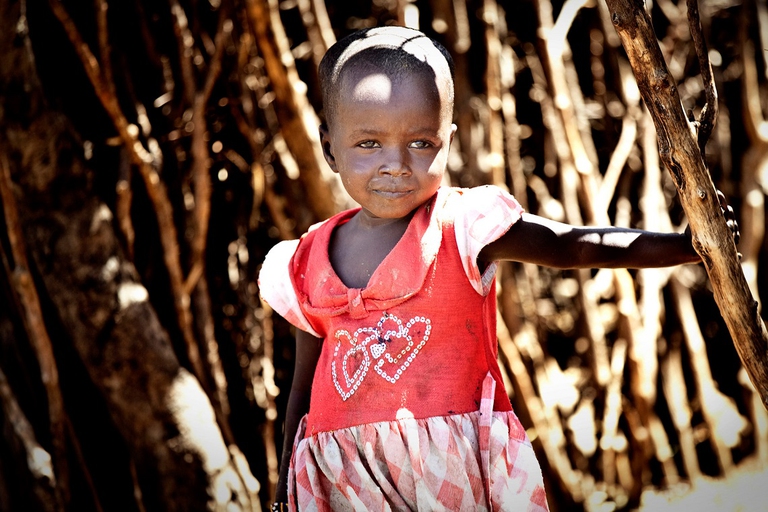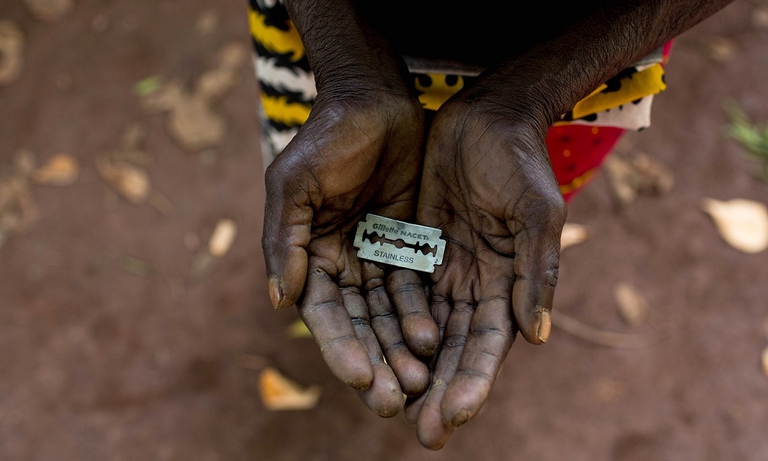
As per tradition after 12 years India held Mahakumbh, the world’s largest spiritual congregation that has been attracting pilgrims from across the globe.
Secondo l’Unicef sono almeno 200 milioni le donne che hanno subito mutilazioni genitali femminili, con drammatiche conseguenze fisiche e psicologiche.
Female genital mutilation (FGM), mainly carried out on girls aged 4 to 14, is the ritual partial or total removal of external female genitalia. Women who undergo this practice, which is recognised as a human rights violation by the international community, risk severe, sometimes irreversible, physical damage as well as being victims of serious psychological trauma.
In order to fight this phenomenon, which has affected at least 200 million women alive today in 30 countries, the International Day of Zero Tolerance for Female Genital Mutilation is celebrated on the 6th of February. The aim of the day, established by the United Nations on the 20th of December 2012 is to encourage governments, civil society and all involved parties to implement concrete actions and increase awareness campaigns against FGM.
According UNICEF report Female Genital Mutilation/Cutting: a Global Concern, 50 per cent of girls and women who have undergone some form of genital mutilation live in 3 countries: Egypt, Ethiopia and Indonesia. Thankfully, the phenomenon seems to have registered a downward trend: between 2005 and 2010 it decreased by 5 per cent. But its eradication is still far from being achieved: it is estimated, in fact, that it will be halved by 2074. Moreover, the steady growth in the world’s population could increase the number of victims of FGM.
Contrary to what many may think, this cruel custom has no religious origin. Most of the problem is linked to lack of education and to the refusal of abandoning habits that are considered normal, if not fundamental, for community life. Indeed, mutilation represents a symbolic – and material – form of the definitive transition from childhood to adulthood – therefore, to marriage – thus favouring community cohesion.
“If we allow girls to go to school, the phenomenon will be wiped out in just a few years. But if they’re going to be illiterate, who is going to develop the community? Who is going to tell people that cutting girls is wrong?,” according to Lucy Yepe Itore, who has been saving Masai and Kenyan girls from mutilation and forced marriages for many years.
Nevertheless, the phenomenon doesn’t affect only developing countries, but Western ones too, where it is carried out by those families coming from places where FGM keeps being seen as a ritual.
Siamo anche su WhatsApp. Segui il canale ufficiale LifeGate per restare aggiornata, aggiornato sulle ultime notizie e sulle nostre attività.
![]()
Quest'opera è distribuita con Licenza Creative Commons Attribuzione - Non commerciale - Non opere derivate 4.0 Internazionale.
As per tradition after 12 years India held Mahakumbh, the world’s largest spiritual congregation that has been attracting pilgrims from across the globe.
Workers in tea gardens of West Bengal, India, that produces Ctc tea for domestic consumption complain that they have been devoid of basic facilities while political parties make hollow promises during every elections which are never fulfilled.
India is in the middle of the elections, but sadly none of the politicians have uttered a word on man-animal conflict that has been devouring several lives every year.
Manipur, a state in north-east India, is still reeling under the tremors of violence that broke out last year devouring lives and paralyzing the economy.
The government of Tanzania is currently planning to evict more than 80.000 indigenous Maasai people from their ancenstral land
A new UNU-INWEH report on the global bottled water industry reveals the massive scale of this market and the lack of strict quality controls.
Isatou Ceesay founded a social enterprise that is helping to fight plastic pollution and empowering women and young people to gain economic independence.
In 2020, Mihela Hladin made a radical decision that many, in recent times, have probably considered. This is her story, with photos by Matt Audiffret.
The Brazilian government has started evicting illegal gold miners, responsible for the health emergency that has hit the Yanomami people.









